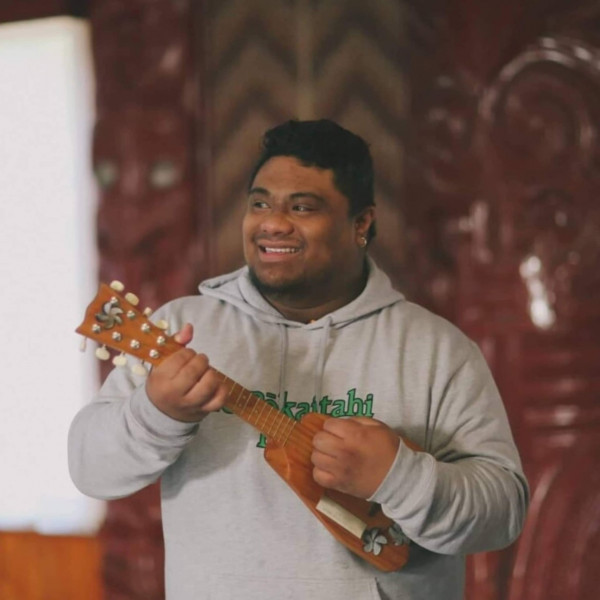Advocate aims to learn as many Pacific languages as possible
Advocate aims to learn as many Pacific languages as possible

With the goal to try and learn as many of our Pacific languages as he can, 25-year-old Kalani Careace Aaron Mose (pictured) is a champion of Pacific identity, culture and language.
“These things are key to upholding and preserving our Pacific identity and culture,” he says.
Auckland-based Education student Kalani is Samoan, with connections to Wallis and Futuna.
Prior to starting his Bachelor of Education (Primary), he worked as a Learning Assistant at Papatoetoe Central School, a Kitchen Hand/Trolley Assistant at Middlemore Hospital, and tutored Pacific dance with a group of able and disabled body members called Pasefika Phusion.
It exposed him to many different people, inspiring his love of learning about various cultures and languages, offered by the Centre for Pacific Languages (CPL).
To date, Kalani has completed Te reo Māori Kūki ‘Āirani Introduction, Vagahau Niue Introduction, Lea faka-Tonga Introduction, Fäeag Rotuạm, and is currently studying the Vosa Vakaviti Introduction course, at CPL.
“Being able to learn how to introduce myself and use simple phrases can go a long way when trying to use that in a real setting like going to a Cook Islands event, a Tongan birthday, or a Niuean church service,” Kalani say.
“There is this proverb I learnt this year which has helped me throughout my CPL journey and will continue to push me to keep that passion and drive alive,” he adds.
“It is a Niuean proverb that goes, Tao e umu ke moho – Prepare your earth oven and make sure it’s cooked.
“This means to finish what you start and do it properly - I started this journey of learning Pacific languages as a kid, and I am continuing this journey.
“Now that I am getting older, I am starting to make sense of how each language is spoken and written, and this is where I start doing things properly by having the right articulation and pronunciations of words and learning the correct sentence structures which will ultimately help speak the language correctly.”
Kalani believes by learning Pacific languages, Pacific people become more aware and prouder of their identity and culture.
“I often feel sad when hearing stories of our Pacific parents who stopped speaking their mother tongue when they arrived in New Zealand because they saw no use of it being spoken in a foreign place.
“However, as studies and experiences show nowadays, our people have become resilient in being proud of our identity and culture – and language is one of those features that we must uphold to maintaining our culture and identity.”
Pacific languages provide so much knowledge and understanding of the world we live in, our connections, ancestors, our customs and our tradition – all of these are highlighted through our language, he adds.
“I personally believe my Pacific language is my tool towards academic success, as well as a tool to communicate and work alongside my Pacific peoples.”
Visit the CPL website for more information on language courses.
